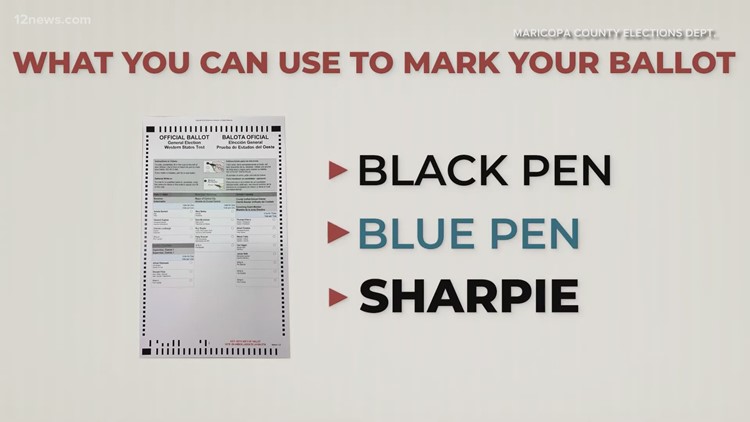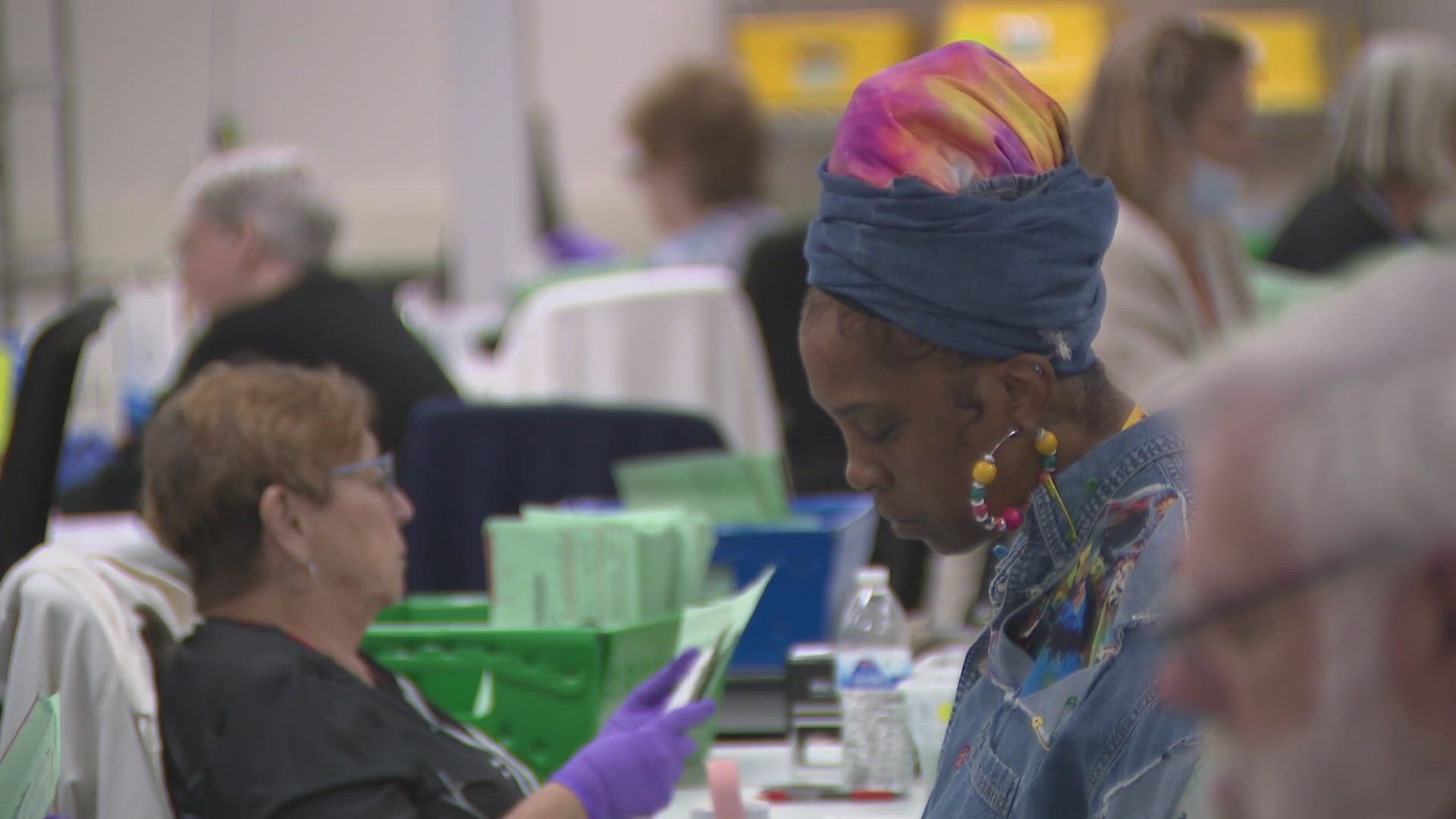MARICOPA COUNTY, Ariz. — An attorney involved in the Sharpie lawsuit against Maricopa County has filed to dismiss the lawsuit, according to a report by the Washington Post. The complaint in the lawsuit stated that the use of Sharpie permanent markers caused voting machines to cancel ballots on election day.
Alexander Kolodin represented a group of several voters, including a voter named Laurie Aguilera as the lead plaintiff.
The suit claimed that the use of Sharpies caused ink to bleed through ballots from one side to the other and that this caused the vote tabulators to be unable to read the ballots.
Kolodin believes voters are entitled to a “perfect and accurate count” that can only be performed by an impartial machine. Ballots that cannot be read by machine can be placed in a pile for manual tabulation, where bipartisan vote counters determine the voter’s intent. Kolodin believes that introduces the possibility of bias or inaccuracy.
Arizona Secretary of State Katie Hobbs, not a party to the suit, rejected the claim numerous times online and on television.
She said she is “100% certain” that the use of a Sharpie would not prevent a vote from being counted, thanks to the manual tabulation process. The Maricopa County Elections Department, which was the defendant in the suit, even said the manufacturer of the machines recommends the use of a Sharpie to mark ballots because the ink dries quickly and will not smudge.
Arizona’s Republic Attorney General, Mark Brnovich, originally planned to look into the matter. After hearing from the Secretary of State, however, Brnovich released a letter saying that he was satisfied that no Arizona voters had been disenfranchised as a result of using Sharpies at polling places.
The Arizona Democratic Party intervened on behalf of Maricopa County, and the Trump Campaign and Republican National Committee intervened on behalf of the plaintiffs. With the suit to be dismissed as soon as Judge Margaret Mahoney signs an order, the suit no longer exists, and none of the parties is involved any longer.
Read the full case analysis below:
Read the statement from the Attorney General's Office below:



